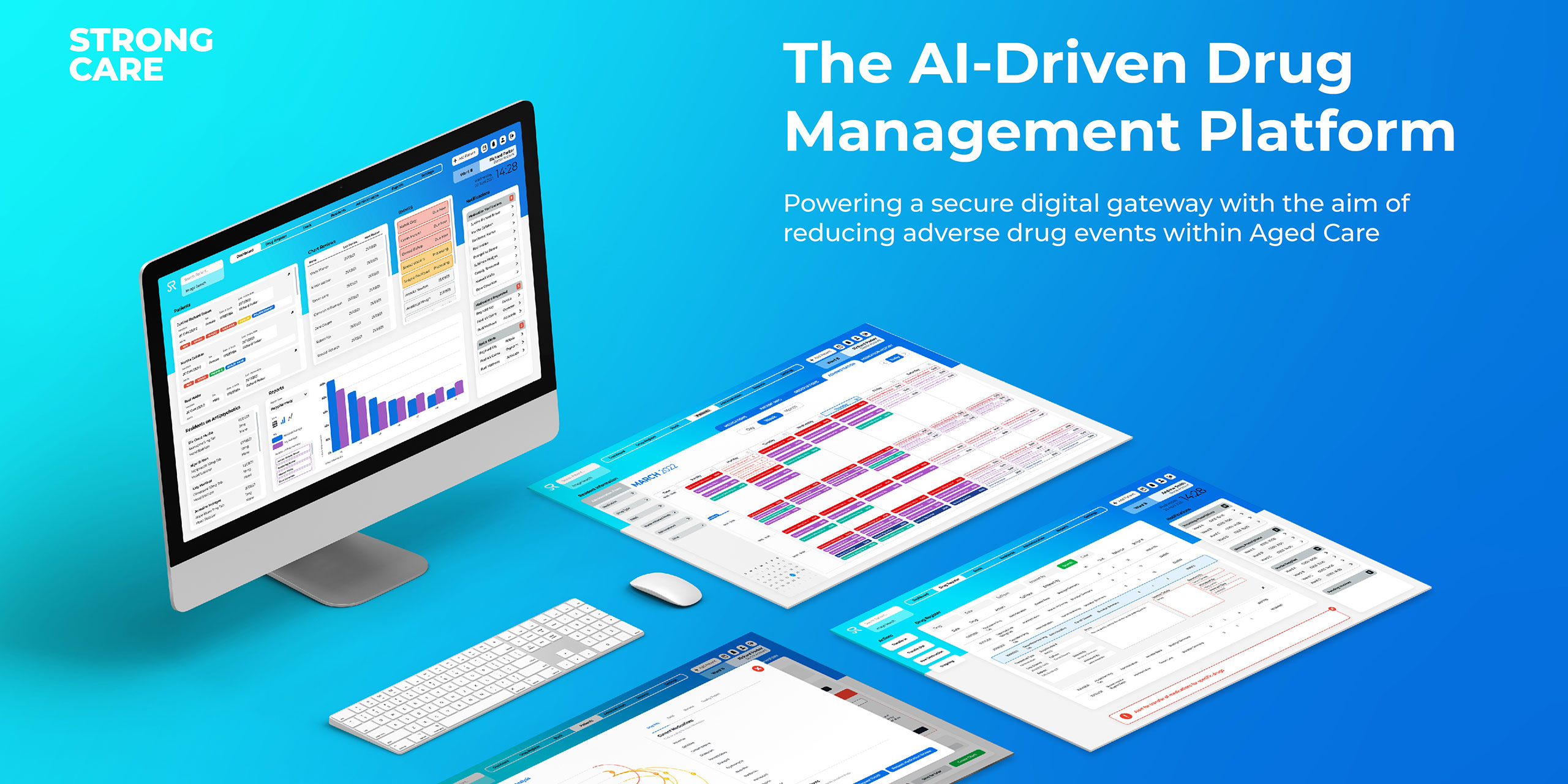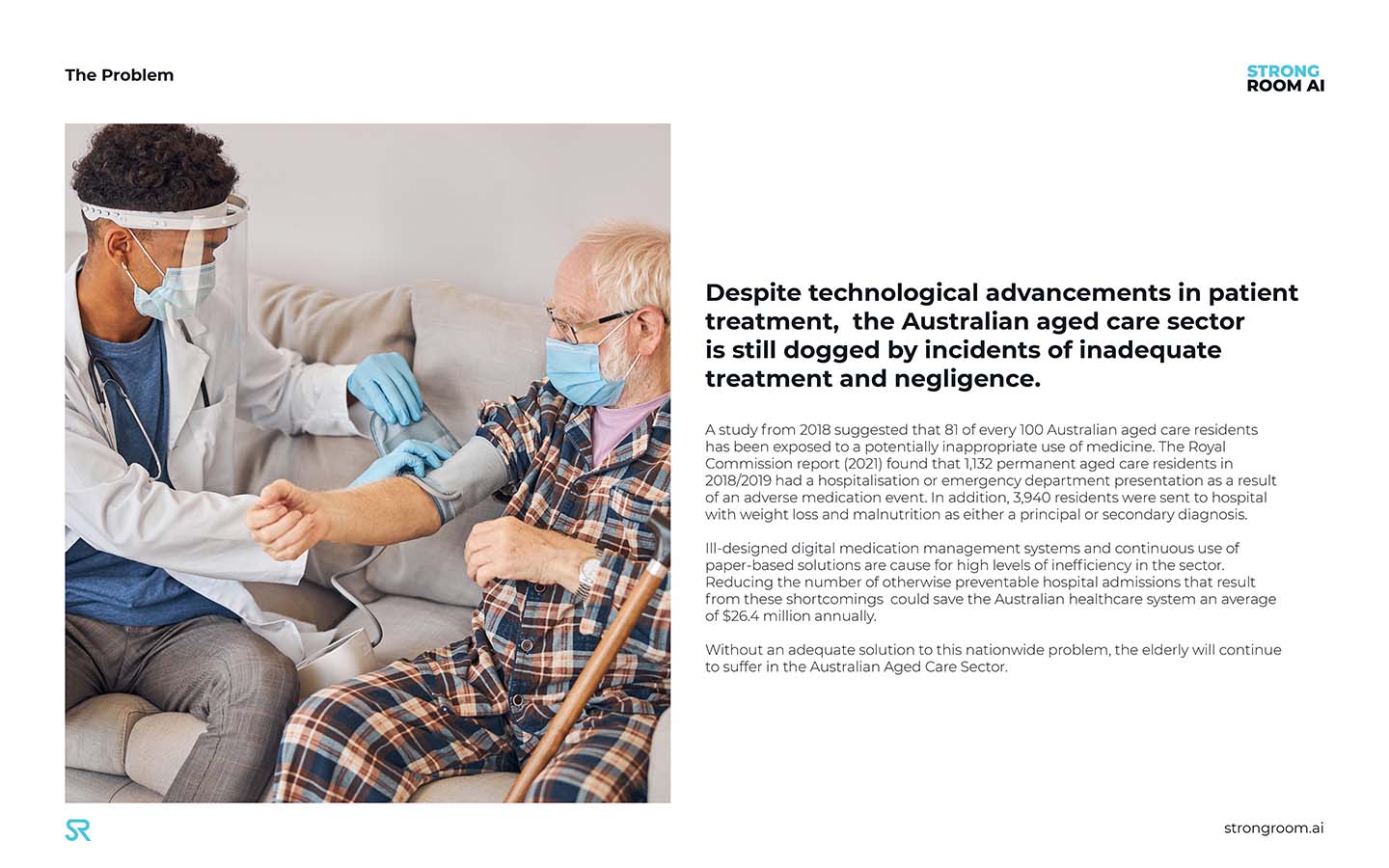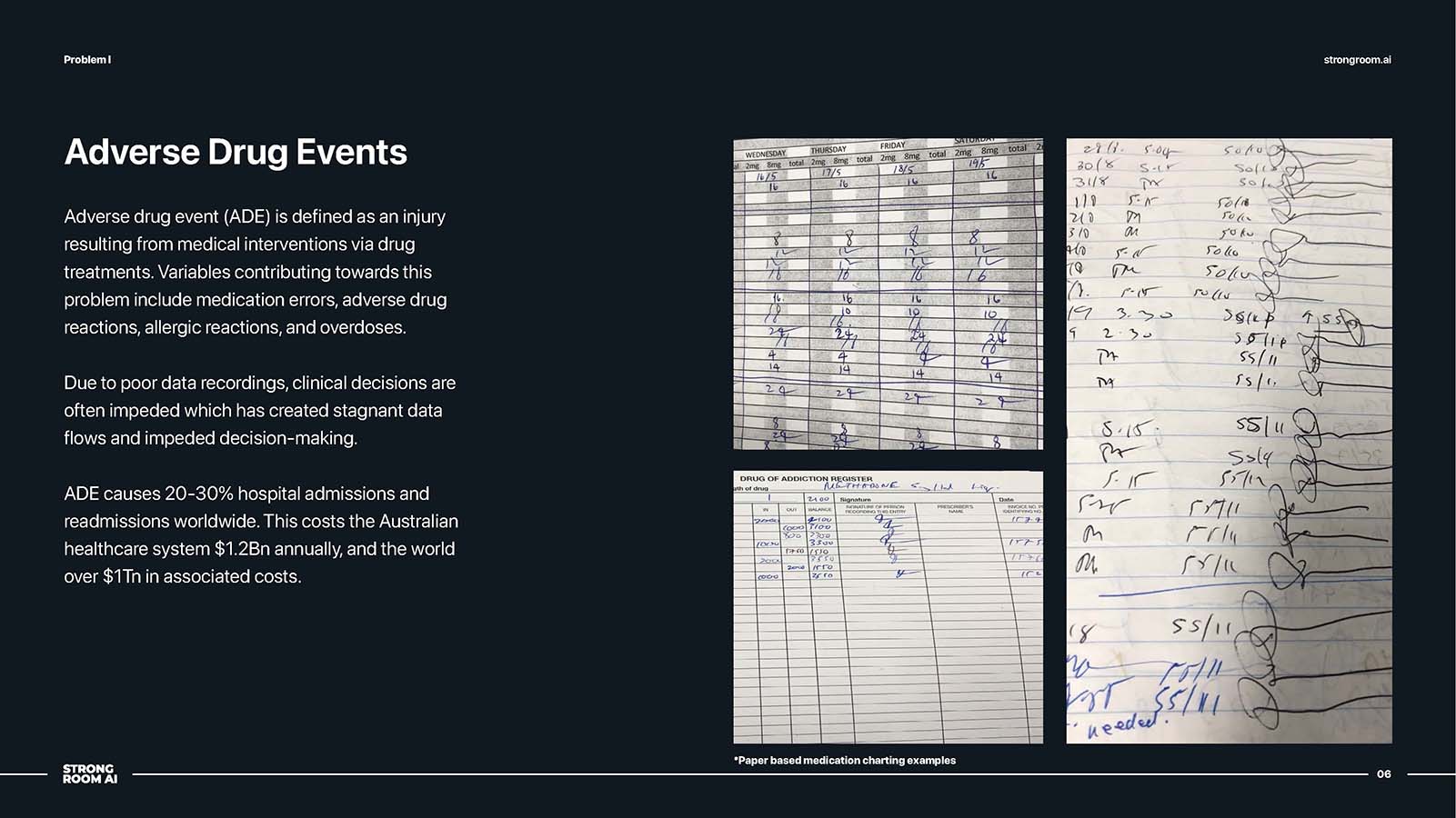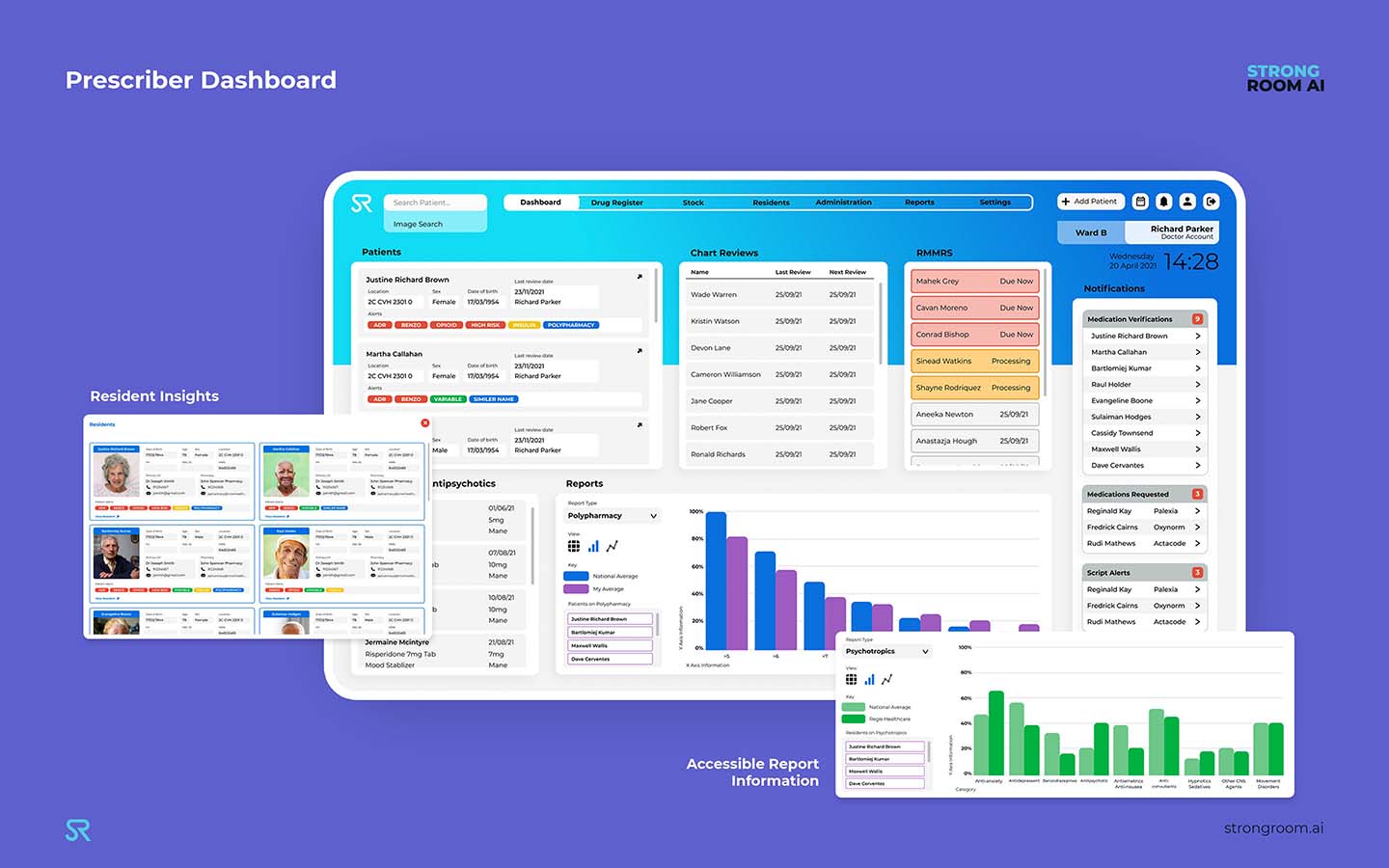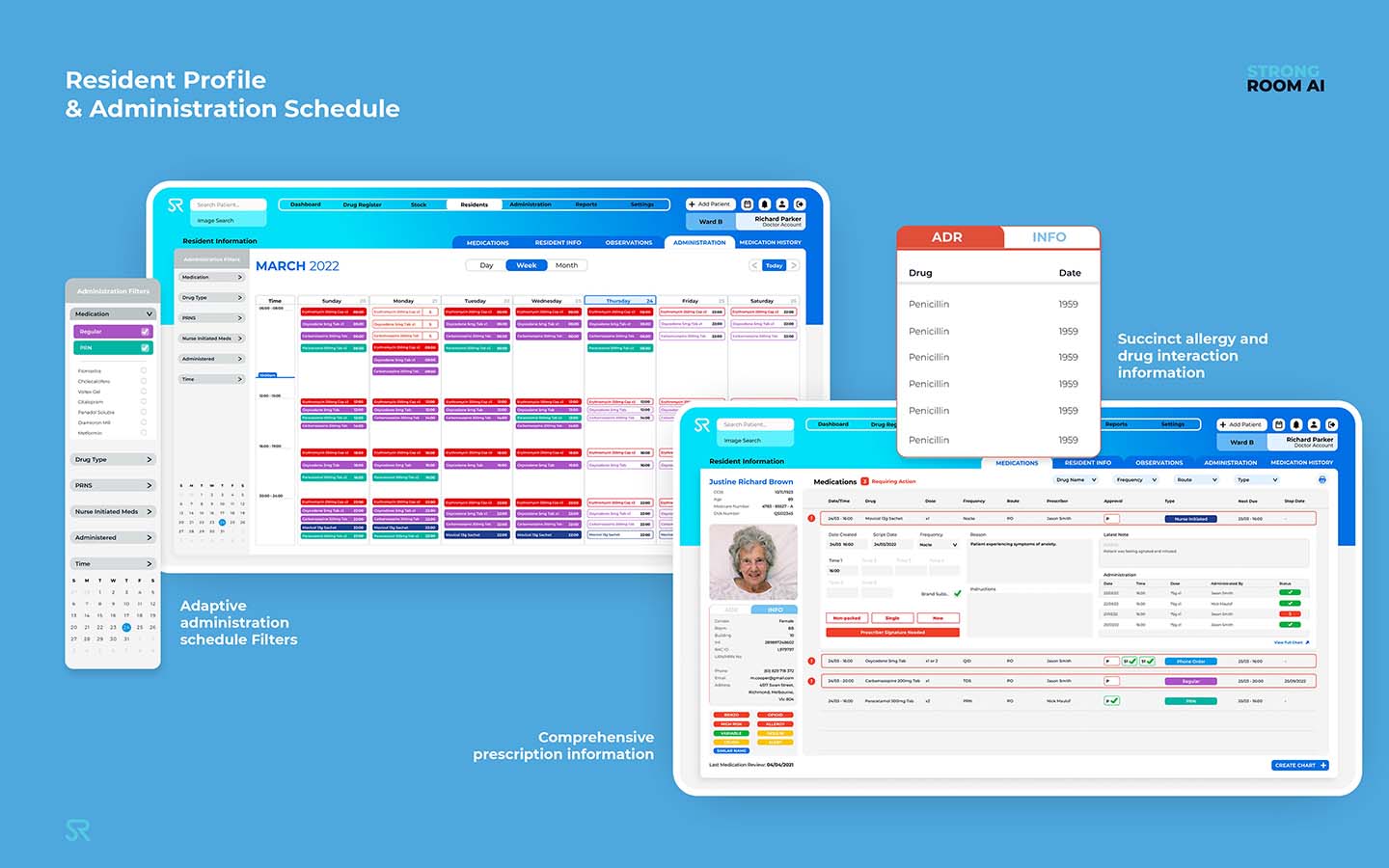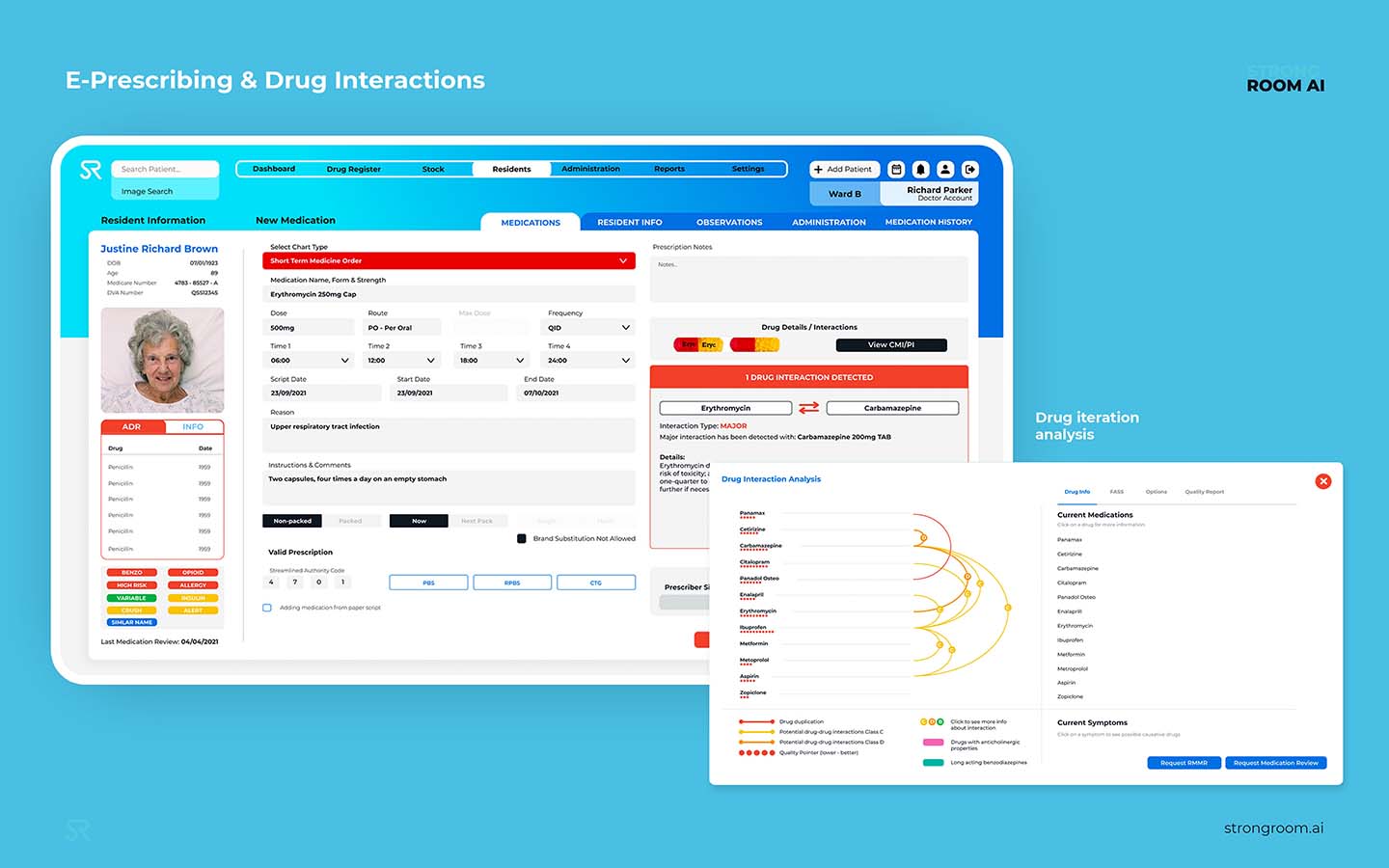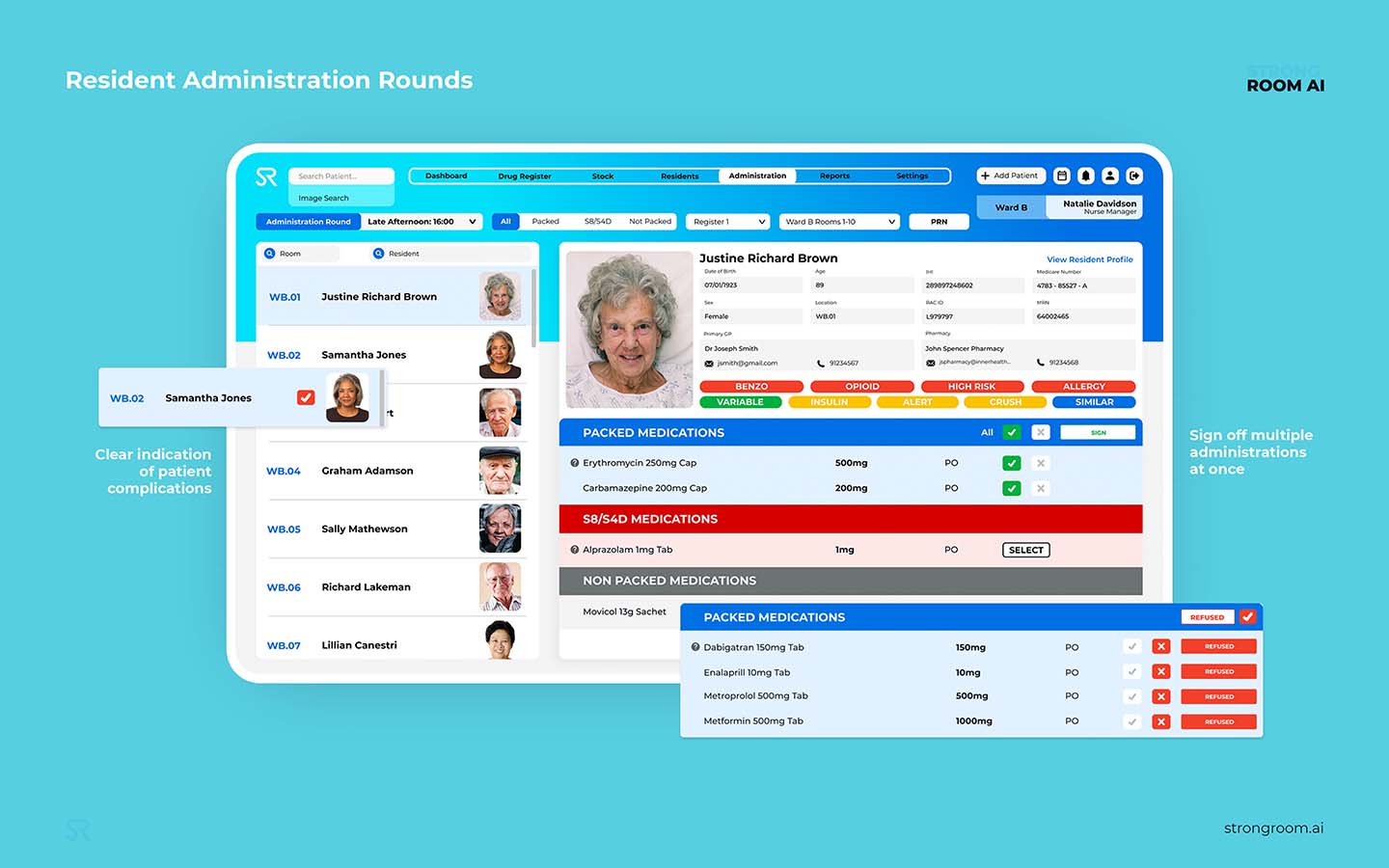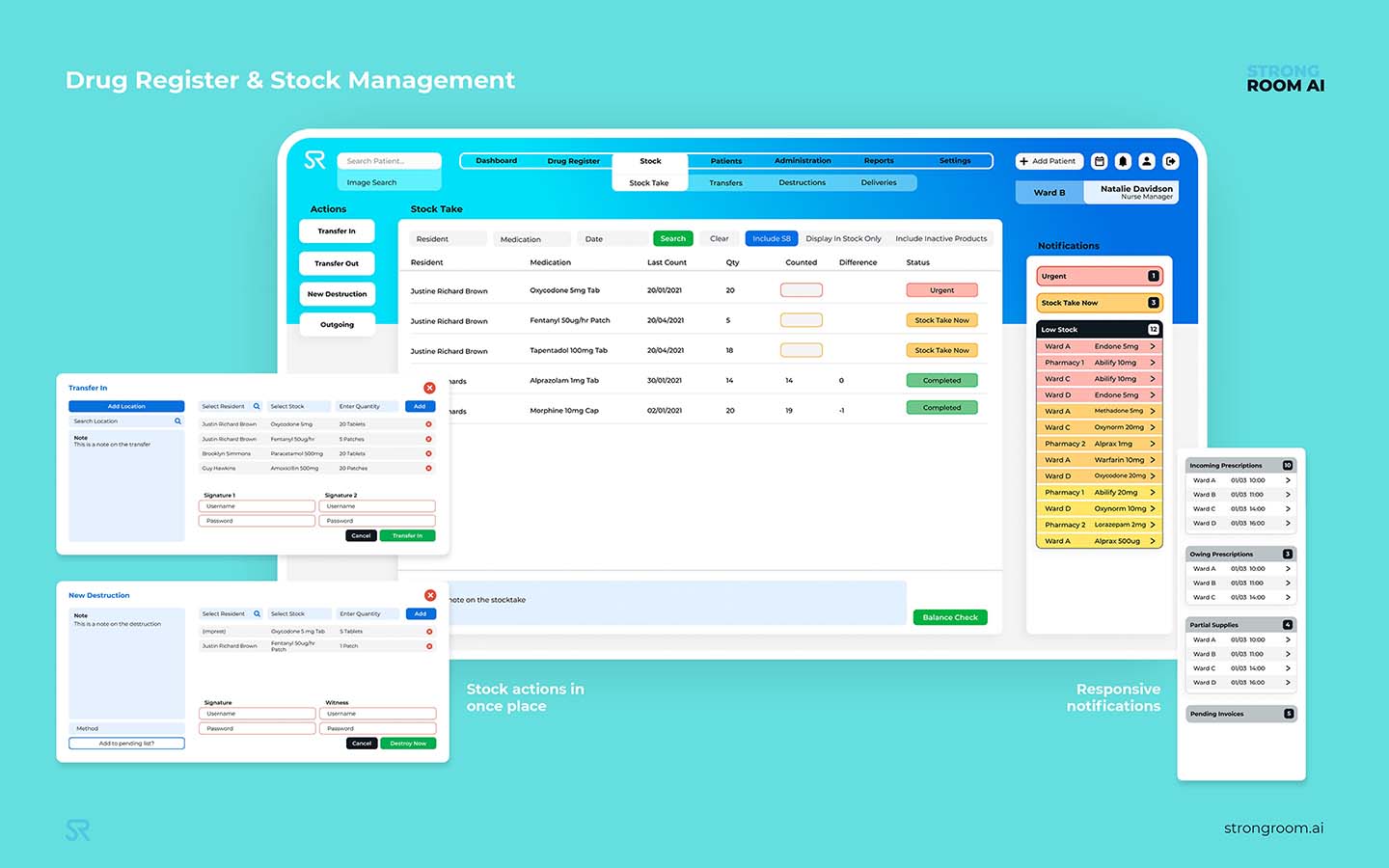Designing a complete medication management system to be used within an aged care facility was an incredibly ambitious brief. A cross-disciplinary team was formed to create an iterative healthcare directed process that covered research, medical design and technological architecture. Central to the process was a user centric design approach. Complete understanding of the experience and interaction of users during each phase of the product was imperative to success.
The immense size of the project meant that firstly we had to break down the platform into modules; drug register, stock management, resident profiles, medication administration, clinical reports, notifications and a dashboard overview. Each of these modules undertook the same design process outlined below. Some of which required this process multiple times as there were seperate users with differing requirements for the same module.
Experience Based Design (EBD): Placing focus on experiences, as opposed to systems and processes, enabled an improved understanding of the aged care management experience from all users. This involved capturing the experience, understanding the experience, improving the experience and measuring improvement.
Case Studies: Examining and evaluating nationwide industry standard paper-based products such as medication prescribing and drug charting enabled us to determine what is required and desired in these processes.
Trans-formative Service Research: Service and systems design method was used to design uplifting changes. It provided a conceptual framework detailing how interactions between users and modules influences the interpretation of both; one module feeds the other.
Synthesis Mapping: Analysing the step-by-step process of user interactions prompted a shared understanding of the complex systematic structures of each module. Problem areas and touch-points were important in detecting obstacles and barriers. Advisor Workshops Semi-structured meetings and workshops with doctors, pharmacists, nurses, managers and aged care specialists were used continuously to form elicit user feedback and suggestions.

